Compressed air is used for various tasks, including powering pneumatic nail guns and spray painting. Whenever your old air compressor shows signs of wear, you may think about how long do air compressor tanks last.
Proper care and maintenance allow you to use an air compressor tank for around 10-15 years. The longevity of a compressor tank can be determined by several factors, including how frequently it is used and its surrounding temperature.
How Long Do Air Compressor Tanks Last
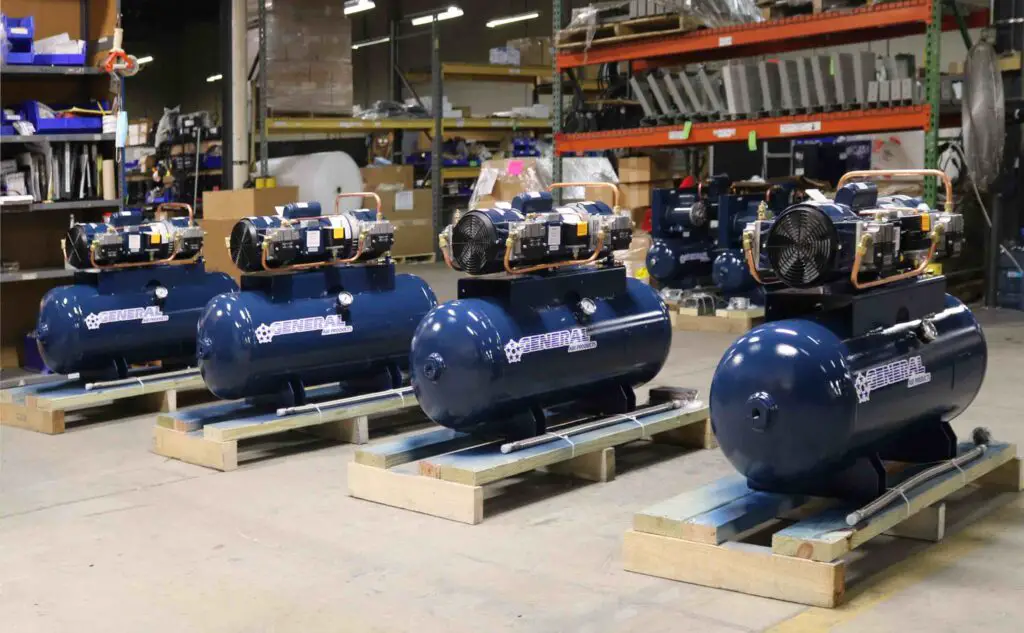
The manufacturers go for an air pressure test before branding or labeling one. Once certified, you don’t have to go for any more testing.
As a compressor owner who genuinely cares about the device’s well-being, you must ensure that the cylinder seems to be in excellent shape. Yet, a compressor tank may last from 10 to 30 years. Smaller tanks require frequent refilling, whereas larger tanks may last longer between refills.
Examine the exterior surface for any severe dents or covered rust cracks. You may figure out what’s within by emptying the water and seeing what comes out. The compressed air from the pump contains oil vapor, which condenses as oily condensate and remains inside the tank to protect it from corrosive corrosion.
You will only have problems if you don’t empty the tank. At the bottom, a heavy layer of filth will accumulate, perhaps causing rust. By performing all routine maintenance, you may anticipate your air compressor and the air tank to last 25 to 30 years.
Looking for the best air compressor for plasma cutter? Check complete review here.
What are the Different Types of Compressor Tanks
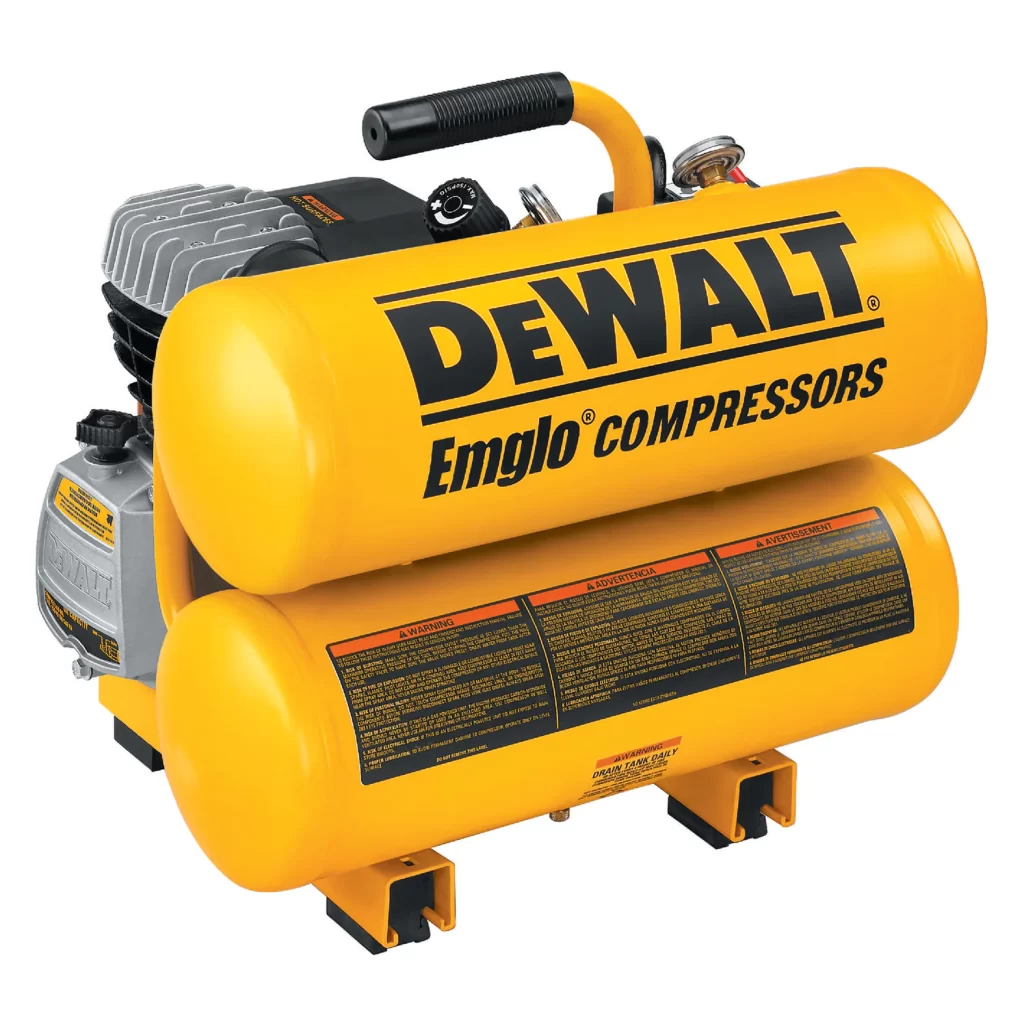
The size and types of an air compressor tank depend on several factors. Following are some facts that determine the tank of an air compressor.
Types of the compressor
Generally, the types of your compressor tank will depend on the type. In most cases, people use pneumatic or reciprocating air compressors.
Another example is rotating screw compressors. Both the compressors require a compressor tank.
On the other hand, a high-pressure air compressor includes centrifugal and axial models. Such compressors are designed for heavy industrial use. So, they are made in such a way that pressure is produced directly through the pipeline toward the workplace.
A piston air compressor only has a single tank. Moreover, the dimensions of the air compressor tanks are stated in gallons. Tank sizes range from 2-10000 gallons.
Application
Application is another parameter to determine the tank size. The 8-gallon pancake air compressors are sufficient for running minor appliances such as tire airbags or doing cleaning activities.
However, if your task includes using a paint or nail gun, you will want a larger air tank of around 30 gallons. That’s because operating a painting spray requires constant airflow.
Furthermore, a bigger tank can provide constant airflow. So, before purchasing a compressor, consider the project.
Compressor capacity
The capacity of your compressor also determines the tank size. A 2HP small pancake compressor has a smaller air tank of around 8 gallons. Moreover, a moderate 6.5 HP air compressor has a tank of approximately 30-50 gallons.
How do you know if your tank has run out
You can use some tips to see if the compressor tank is overflowing. Not all of this is true, but it’s a good start.
Check the fluid when emptying the tank
When emptying the tank, look for small spots of rust in your fluid. The more rust it has, the worse the tank inside will be.
Check the tank from the outside
Look for rust, dents, small spills, and other damage signs outside the tank.
Listen to sounds
Tap the tank gently using a metal object or hammer. Pay attention to the sound. Then tap on the bottom of your tank. If you find a noticeable discrepancy, you may have a speck of dirt and rust on the tank bottom where moisture stashes.
Test your the tank
You may check the cylinder pressure at a diving or welding workshop. Nevertheless, these tests are expensive, depending on the cost of your compressor.
Wondering if you can use 10w30 in your air compressor? Check this article about oils for air compressors.
What Affects the Longevity of a Compressor Tank
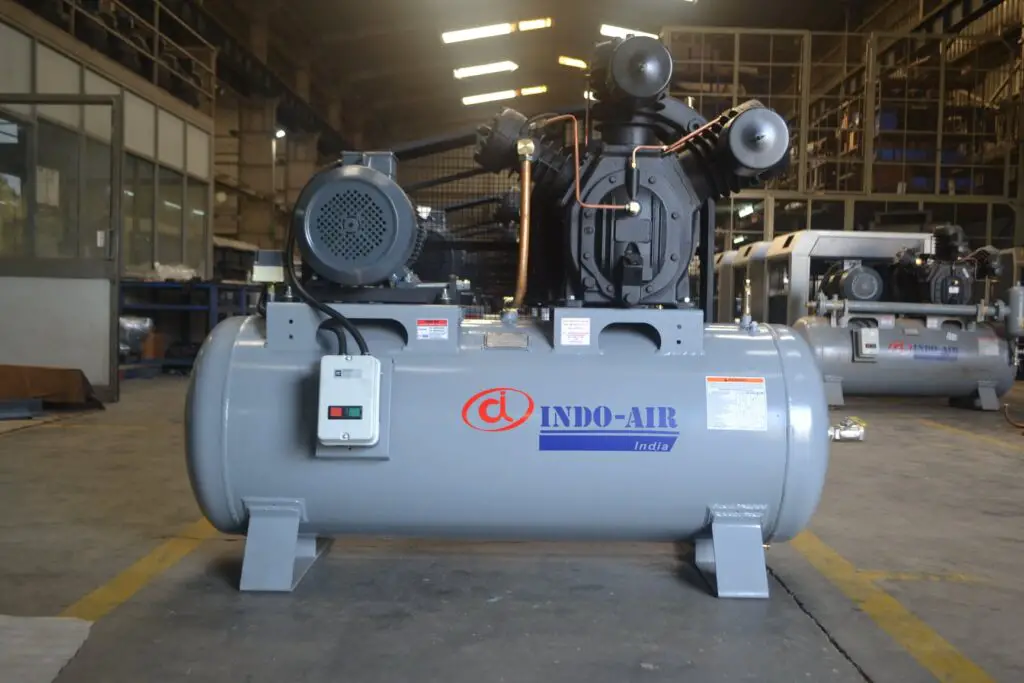
The tank may fail at any time, leaving the entire system worthless. However, several factors can influence how long an air compressor tank lasts. Let’s have a look at them!
Temperature
Cold weather makes stainless steel fragile and prone to breaking. High heat, on either hand, may force the steel to grow over its limits, causing the tank to burst or split.
Therefore, the tank doesn’t last as much if utilized in harsh temperatures. If you reside in an area with extreme weather, it may be worth putting in two air compressor tanks to rotate between.
Tank size
The appearance of your air compressor tank dramatically influences how much it will survive. Smaller tanks fade out faster than giant tanks and need frequent refilling. That takes the pressure into the tank to loop more frequently.
You may compromise the tank’s lifespan when your compressor requires frequent daily refills. Smaller air compressor tanks are lighter than bigger ones.
Not Properly Maintained
The longevity of an air compressor tank is also affected by its maintenance. It will rust and degrade if you don’t wash the dirt off your tank. When this occurs, the steel becomes thin and is more prone to rupture.
If the tank is full of trash and sludge, it will lose force and fail to fill appropriately. When you find your tank dropping pressure, wash it immediately to extend its life. Every time you refill the tank, inspect it for particles and wash it off with a towel.
Usage
Another element influencing the life of air compressor tanks is the number of users. When you frequently use a compressor, it’ll not survive as long since the pressure applied to the tank is more frequent.
For example, if the air compressor is run for 3–5 hours and then shut off for an hour before being restarted. It is essential to mention that specific compressors are intended to rapidly perform on/off cycles that do not permit the tank to cool down completely. You can use those compressors for shorter times but shorten the tank’s life.
How to enhance the lifespan of a tank?
You must maintain the air compressor system to get the most out of it. Your compressor tank may last 12-15 years if maintained properly.
If you have any significant issues beyond this time, it is best to replace them. Keep your compressor apart from water since water can be the air compressor’s number one enemy.
After each usage of the compressor, terminate the pressure. By opening the compressor’s bladder valve, you may remove the moisture from the tank. Replace your bladder valve if it is not working correctly.
Always remember to place the compressor somewhere dry and ventilated. Whenever your air compressor is being lubricated, you should replace the lubricants every three months. To remove water from the air, choose an air purifier.
Keep the air tank dry, and use moisture-gripping substances such as silica gel, sulfuric acid, or sodium chloride. You should use lubricants to clean your compressor since they help avoid rusting.
Keep your compressor in an excellent area to obtain fresh air. When your compressor tank becomes fragile, you should change it as quickly as possible to stop the blast.
Need to know how to fill paintball tank with air compressor? That’s easy with a step-by-step guide here.
FAQs
1. Do compressed air tanks expire?
Yes, it is. Air tanks are thrown away by dates on one leg. These tanks usually don’t have drainage, are cheap, and often inexpensive to make, so it’s not a good idea to use one past the expiration date. Yet, many people think this date is just a suggestion and continue using portable air tanks long after the date. Some industrial compressors also have an expiration date. It is required by ordinance in many countries. However, those tanks must sometimes be tested and recertified for further use.
2. Do air compressor tanks rust out?
An air compressor tank is prone to corrosion and rust if not adequately cared for. The air tank is vulnerable to rust because of plenty of things with moisture. Compressing humidified air above normal atmospheric force causes moisture to concentrate from vapor to liquid. This concentrated moisture settles at the tank bottom, and the remaining water vapor remains in the tank until it becomes cool and finally condenses
3. When to change the compressor tank?
When you notice plenty of rust particles discharging from the tank each time you empty it, be sure it’s time to buy a new one. You can go further and wait till you have a tank leak. If it happens, it’s time to change the tank. Moreover, a small air leak outside means a much more significant issue is inside. Fixing this leak will allow you to run the compressor longer, though it can be a threat as the tank inside is more likely to be damaged.
Final Verdict
Most air compressors for home use do not have a specific expiration date. Yet, portable tanks and other compressor tanks commonly used in the industry have an expiration date after which you can no longer use them. Know how long air compressor tanks last and see if they have a cessation date.
Having no expiration date means you can use it for so long. So, take care of your tank properly, and so you can have a longer lifespan for your tank.
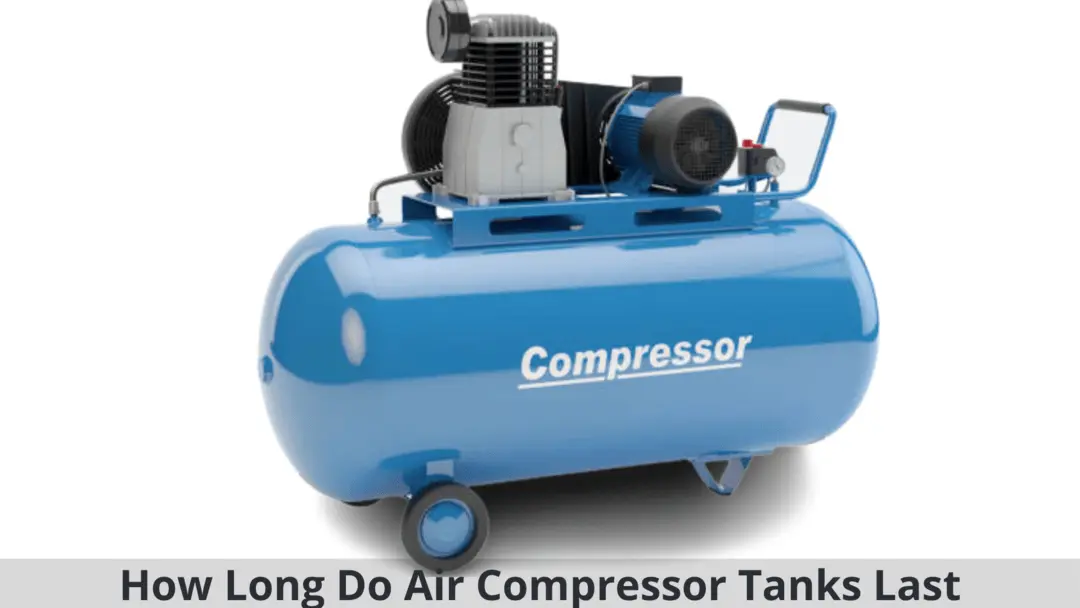
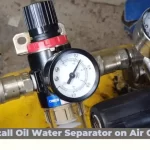


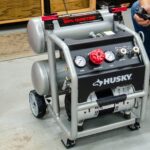

1 thought on “How Long Do Air Compressor Tanks Last – Exclusive Guide”